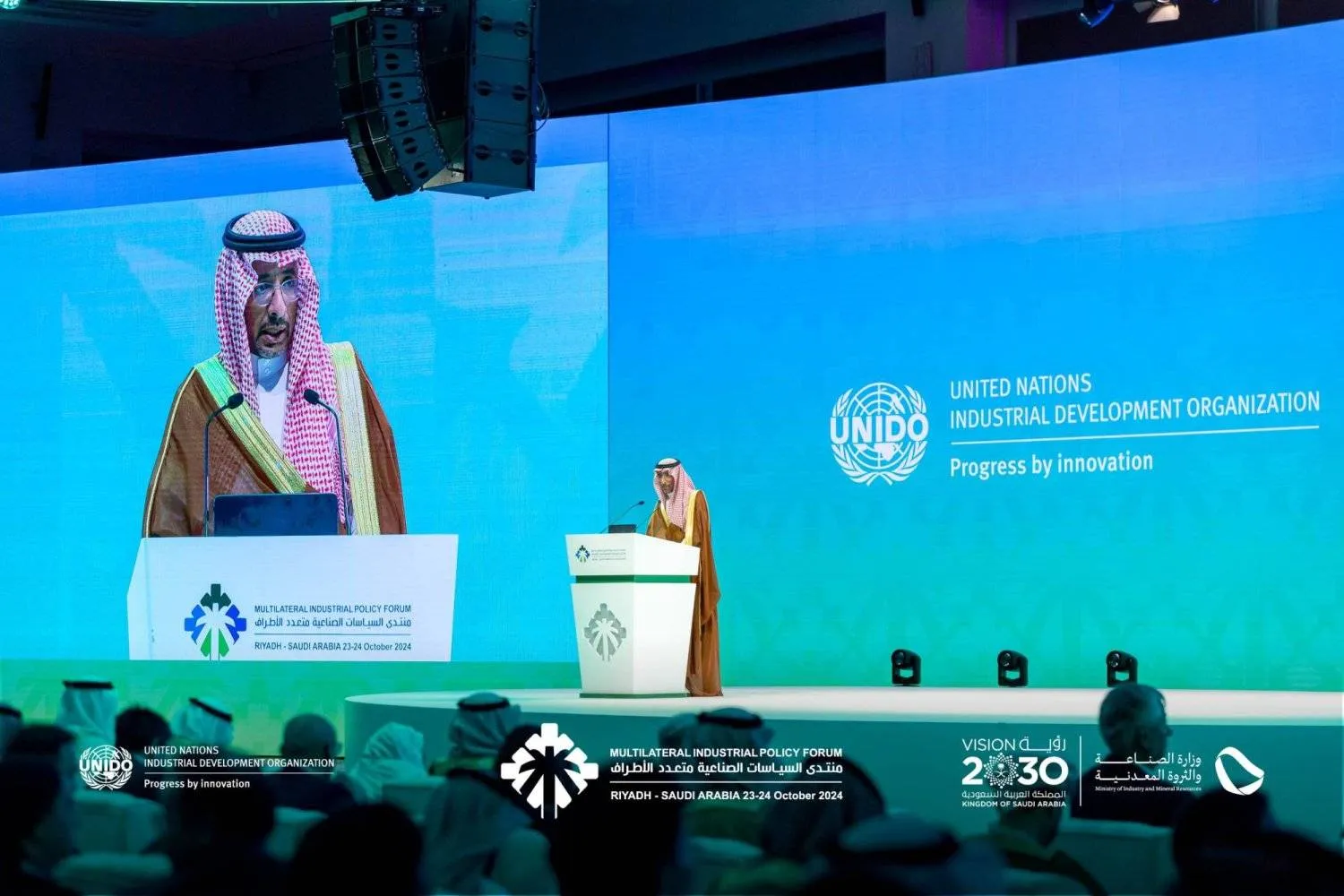Global industry leaders at the Multilateral Industrial Policy Forum, which commenced on Wednesday in Riyadh, emphasized the need for international collaboration among governments to enhance the industrial sector and address the challenges it faces. They highlighted that the event explores new forms of international partnerships to create policies that promote a future based on innovation and sustainability.
The Saudi capital hosted the second edition of the Multilateral Industrial Policy Forum (MIPF), organized by the Ministry of Industry and Mineral Resources in collaboration with the United Nations Industrial Development Organization (UNIDO). The event saw the participation of local and international ministers, officials, prominent figures, and decision-makers from around the world.
Bander Al-Khorayef, Saudi Arabia’s Minister of Industry and Mineral Resources, stressed the importance of the forum in fostering international dialogue and cooperation on industrial policies, particularly given the current global challenges and opportunities. He emphasized the need for joint efforts to build a strong industrial future based on innovation, sustainability, resilience, and international cooperation. Additionally, he called for practical and inclusive dialogue to drive transformative changes in global industrial policy-making.
The minister noted that the forum offers a valuable opportunity to explore new forms of partnerships, align policies, and create synergies to complement capacities. He also highlighted the importance of building more resilient supply chains, accessing market opportunities, distributing benefits equitably, and leveraging best practices to address common challenges and build a stronger industrial environment.
Al-Khorayef also said that Saudi Arabia’s Vision 2030 aims to transform the economy by diversifying income sources and developing non-oil sectors. He viewed the forum as a crucial step toward achieving the Kingdom’s aspirations, particularly by strengthening the role of industry as a key driver of development. He also mentioned Saudi Arabia’s vast mineral resources, which are essential for advancing economic diversification.
Saudi Energy Minister Prince Abdulaziz bin Salman stressed the importance of global cooperation in solving the challenges faced by the industrial sector. He noted that ensuring energy efficiency and security is vital for the resilience and competitiveness of industries in the global economy.
During the forum, Prince Abdulaziz reiterated that energy is fundamental to industrial growth and must be integrated into discussions on industrial events. He added that Saudi Arabia has introduced policies to improve energy efficiency, which have optimized energy use, calling for joint efforts to overcome obstacles through established strategies.
Gerd Müller, Director General of UNIDO, stated that the world faces enormous challenges and global crises, with industry playing a key role in solving them. He acknowledged Saudi Arabia’s role in fostering international cooperation to drive sustainable industrialization, emphasizing that the world’s poorest people are the most affected by these crises. Müller noted that the International Labour Organization estimates that the pandemic alone resulted in the loss of 50 million jobs worldwide, not including the impacts of wars and climate change.










